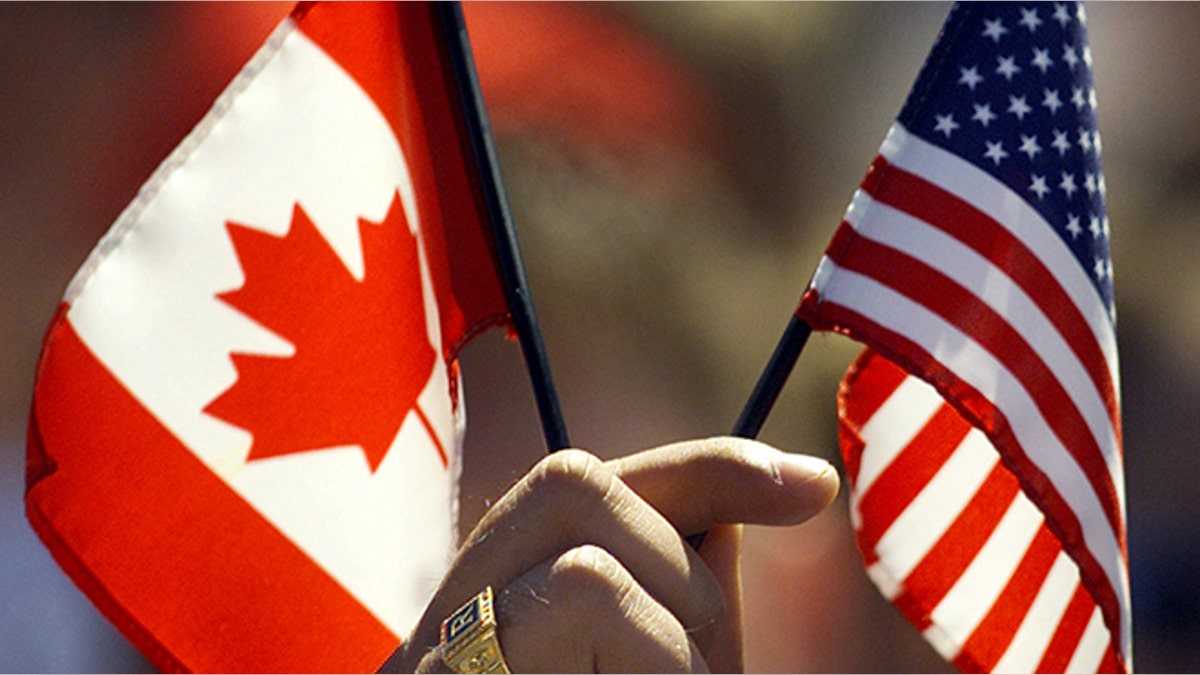
(Reuters)
My mother was Canadian. My father was from New York. They met as camp counselors in New York and within months my mom had settled in New York.
Every year growing up we would travel to Canada to visit the relatives. I enjoyed the seemingly magic relationship with my cousins and between the U.S. and Canada.
But in just a few short years, we have alienated Canada, turning what was once our best friend into a mere geographical acquaintance.
[pullquote]
Repeated U.S. snubs over the past five years have dramatically cooled our relationship with our northern neighbor, and unless we make some changes fast, we could find we have pushed away our biggest trading partner and closest ally.
The weakening of such an important friendship would be disastrous for the technology industry, and indeed the U.S. economy as a whole.
The Obama administration has done very little to maintain strong relations with Canada.
Granted, President Obama spoke highly of our neighbors when he visited Ottawa in 2009, shortly after his inauguration. Yet he has only visited Canada once since then, in 2010, to attend the G8 and G20 summits.
The U.S. offered very little support in 2010, when Canada tried for a seat on the U.N. Security Council. That same year, then-Secretary of State Hillary Clinton publicly upbraided Canada for failing to invite certain states to an Arctic Coastal Meeting.
More, we have allowed our ally’s assistance in the Middle East – including the more than 150 Canadian soldiers who sacrificed their lives in the war in Afghanistan – to go largely unnoticed.
Our history of close and easy trade with Canada has eroded. Canada is our still our number one trading partner. Yet we allow challenges to persist in border crossings and especially in the oil trade, despite Canada’s heavy oil subsidies to the U.S., which some estimate cost Canada $1,200 annually per Canadian.
Of course, the most well-known source of dispute between Canada and the U.S. is the Keystone Pipeline, which would transport an estimated 830,000 barrels of oil per day – about half of what we currently import from the Middle East. Yet every day for the past five years we have failed to approve the Keystone Pipeline, which has been a daily, visible and hurtful insult to Canada.
Now the State Department is investigating whether rail lines could move as much oil as the pipeline is predicted to move, further staving off a final decision.
The repeated delays will not cut oil use in the U.S. as the advocates hope. Instead, Canada is looking west and has begun the process of building a pipeline from Alberta to Canada’s Atlantic coast, creating a route to ship oil to Asia.
We are leaving them no other choice.
Canada is also looking to increase its trade with the European Union. In late October, Canada and the EU signed a trade deal that will dramatically lower tariffs on exports from both regions, increasing bilateral trade by 23 percent.
Meanwhile, we frustrate our own trade with Canadian businesses every day, as their trucks wait hours to cross our borders at crossings like Windsor to Detroit.
My industry, consumer electronics, benefits a great deal from trade with Canada.
U.S. electronics exports to Canada are, on average, twice as high as our imports.
While we have enacted solutions, like the December 2011 “Beyond the Border” initiative aimed at easing the trade burden between the U.S. and Canada, the process is being held up by Department of Homeland Security bureaucracy. The result has been lack of investment in trade infrastructure and an undermining of our internal trade competitiveness.
Without a radical shift in direction, the Obama administration’s legacy will be the erosion of trust from and shifting of alliances by our biggest trading partner and formerly closest ally, Canada.
How do we fix this? The Obama administration can take some immediate steps.
First, President Obama should plan a few visits to our neighbor to the north. It’s well worth his time.
Second, we must approve the Keystone Pipeline. The pipeline would be better for the environment than transporting oil by the truckload, and it is far safer than moving oil by rail.
More, extracting natural gas can be cleaner than coal, which is often used as an alternative fuel. Further lowering U.S. tariffs on Canadian goods would foster good will further strengthen our relationship.
Finally, resolving border-crossing delays for truckers would speak volumes and could help solidify the relationship. Two-thirds of Canada’s trade with the U.S. is transported by truck, and 80 percent of our goods are imported into Canada the same way.
Earlier this year, Obama approved a new Detroit-Windsor bridge to help open up traffic. This is a good start, allowing shipments to make it across the border with fewer delays. The bridge could be open as soon as 2020, provided we allow work to continue without unnecessary delays and bureaucratic red tape.
As Canada looks to increase international trade with the European Union (EU), we should offer our support. We are already working hard to establish a Transatlantic Trade and Investment Partnership (TTIP) with the EU.
Why not revitalize NAFTA and work to link our agreements with the EU, creating a mass NAFTA/EU trade agreement to benefit everyone?
The U.S. needs Canada. Our challenge now is that we must act to ensure Canada needs us. My Canadian relatives and their fellow citizens deserve our loyalty and friendship. And we need theirs.
